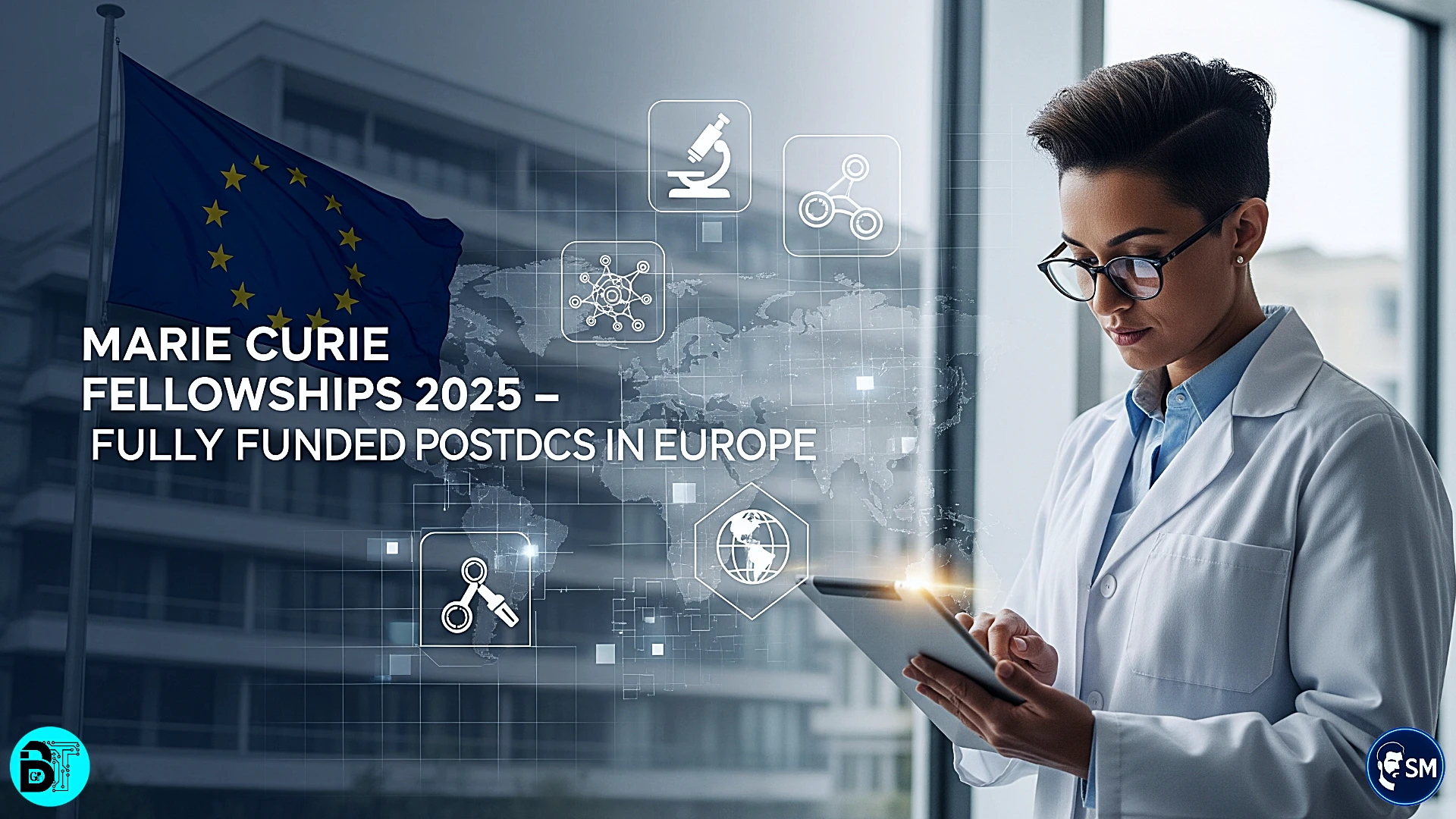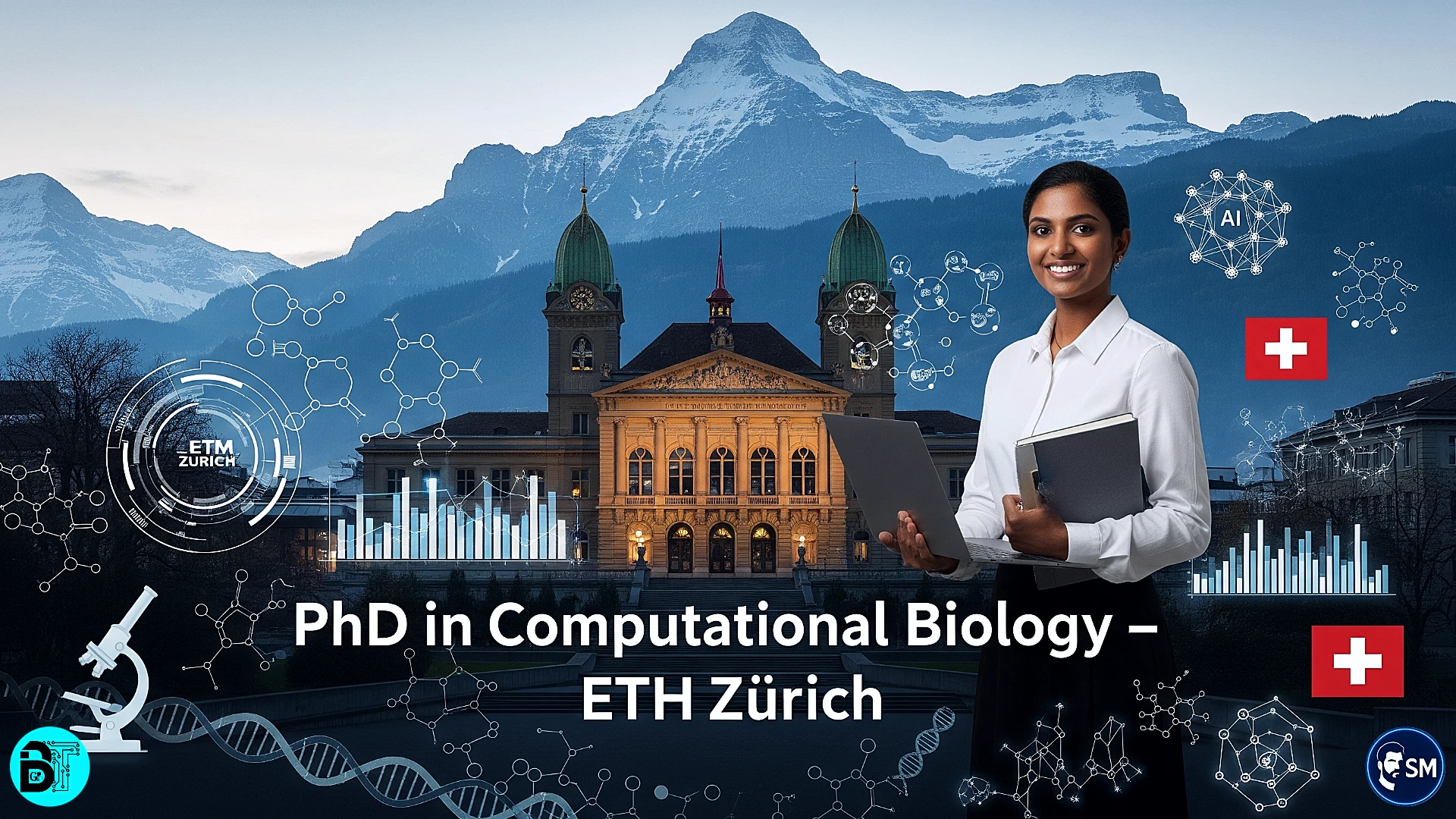Marie Curie Postdoctoral Fellowships 2025 – European Commission

Prestigious postdoctoral funding for researchers worldwide to conduct high-impact research across Europe under the EU’s Horizon Europe framework.
What is the Marie Skłodowska-Curie Postdoctoral Fellowship?
The Marie Skłodowska-Curie Actions (MSCA) Postdoctoral Fellowships are part of the European Commission’s Horizon Europe program, designed to support excellent researchers worldwide. These fellowships provide full funding to conduct cutting-edge research at European host institutions while promoting international mobility, interdisciplinary collaboration, and career development.
Open to researchers from all countries (including India), MSCA fellowships support postdoctoral projects in any research area—from life sciences and engineering to social sciences and humanities.
Fellowship Types
• European Postdoctoral Fellowships: For researchers of any nationality to work at a host institution in an EU Member State or Horizon Europe Associated Country for 1–2 years.
• Global Postdoctoral Fellowships: For EU nationals or long-term residents to carry out a 1–2 year research project outside Europe (e.g., USA, Japan), followed by a mandatory 1-year return phase in Europe.
Who Can Apply?
The MSCA fellowships are open to postdoctoral researchers from all disciplines and nationalities, including Indian nationals. Here's what you need to qualify:
• PhD Degree: You must have successfully defended your doctoral thesis before the call deadline.
• Experience Limit: You must have less than 8 years of full-time research experience after your PhD at the time of application.
• Mobility Rule: You should not have lived or worked in the host country for more than 12 months in the past 3 years.
• Host Institution: You must apply jointly with a European host institution (university, research center, or company) that agrees to mentor your research project.
How Indian Researchers Can Apply
Indian postdoctoral researchers are fully eligible to apply for European Postdoctoral Fellowships. Here’s how you can apply:
Step 1: Identify a potential European host institution that aligns with your research interests. You can explore the MSCA hosting offers database or contact researchers directly.
Step 2: Contact a European professor or PI with a research proposal idea and express interest in applying jointly for MSCA. You will need their consent and support to proceed.
Step 3: Collaborate with the host to co-write your project proposal. The host submits the application on the EU Funding & Tenders Portal.
Step 4: Submit the full application (around 10 pages), including your CV, ethics declaration, proposal summary, and training plan, before the annual call deadline.
Funding Benefits
The MSCA fellowship provides generous financial support to researchers and their host institutions:
• Monthly Living Allowance: ~€5,080/month (gross, adjusted by country correction factor)
• Mobility Allowance: ~€600/month
• Family Allowance: ~€660/month (if applicable)
• Research, Training & Networking Costs: €1,000/month paid to the host institution
• Full Insurance & Social Security Coverage through the host country employment contract
Application Timeline (Typical)
• March–May: Host institutions start searching for fellows and announce interest
• June–August: Proposal co-writing and revisions
• September: Application deadline (typically mid-September each year)
• February–April (following year): Results announced
• May–September: Project start (negotiated with the host)
Tips for a Competitive Application
• Choose the Right Supervisor: Look for mentors with a strong publication record, successful EU projects, and alignment with your research goals.
• Focus on Impact: Your proposal must demonstrate scientific excellence, career development, interdisciplinary training, and public engagement.
• Training Plan: Include soft skills development (teaching, writing, outreach, entrepreneurship) as part of your personal growth.
• Make Use of Support Offices: Most universities in Europe have MSCA support teams to help you with writing and submission.
Common Mistakes to Avoid
• Late Networking: Start contacting hosts 6 months in advance. Last-minute applications rarely succeed.
• Weak Career Impact: MSCA values how the fellowship will improve your long-term career—don’t focus only on research outcomes.
• Ignoring Mobility Rule: Double-check your stay history in the host country to avoid automatic ineligibility.
• Poor Structuring: Use the official MSCA template and follow page limits and headings carefully.
Life as an MSCA Fellow in Europe
MSCA Fellows become part of an elite network of researchers across Europe. You’ll enjoy world-class labs, international collaborations, cross-sectoral experiences, and exposure to EU industry and innovation ecosystems.
Whether you’re based in France, Germany, Spain, or Scandinavia, you’ll have access to multilingual, multicultural environments and the chance to build a globally competitive research profile.
How to Get Started
• Browse Hosting Offers: Use platforms like EURAXESS or MSCA Expression of Interest boards to find supervisors.
• Reach Out: Email potential supervisors with your CV, research interests, and project idea.
• Check the Portal: Visit the official MSCA website and the EU Funding & Tenders Portal.
• Use Indian Support Offices: Reach out to the EU Delegation in India or IITs that support MSCA outreach.
Final Words
Marie Curie Fellowships represent the gold standard in postdoctoral research funding across Europe. They’re highly competitive, but also deeply rewarding—both professionally and financially. If you’re an Indian researcher dreaming of international collaboration and cutting-edge research, this is one of the best pathways to global academic success.
✨ Need help with emailing supervisors, proposal outline templates, or MSCA writing samples? I’d be happy to support you!
Frequently Asked Questions
Founder of BTGenZ. Passionate about simplifying biotechnology for the next generation and bridging the information gap for aspiring biotechnologists in India.

Related Reads
Engage with Our Community
Join the conversation and share your thoughts with the BTGenZ community!
Connect on LinkedInLoading commenting section...
Comments Section
No approved comments yet. Be the first to leave a comment!